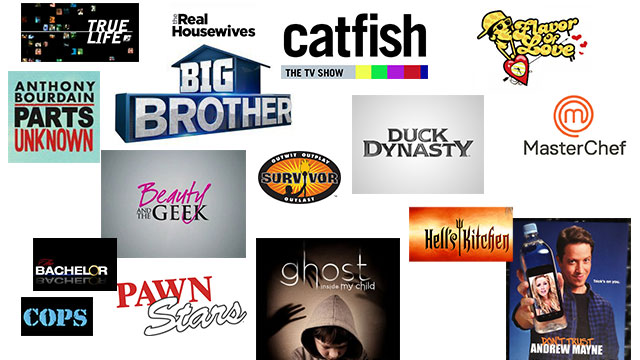Buzz Haven: Your Source for Trending Insights
Stay updated with the latest buzz in news, trends, and lifestyle.
Why Reality TV Is the Best Worst Thing to Ever Happen to Television
Discover why reality TV is both a guilty pleasure and a cultural phenomenon—unravel the chaos that changed television forever!
The Cultural Impact of Reality TV: A Double-Edged Sword
The rise of reality TV has undeniably shaped modern culture, influencing everything from fashion to social norms. Programs such as Keeping Up with the Kardashians and The Real World have blurred the lines between entertainment and reality, often exaggerating real-life situations for dramatic effect. This phenomenon has led to a new form of celebrity, wherein individuals gain fame not through traditional talent but through their perceived 'realness' or relatability on screen. The cultural impact of these shows can be seen in the embracing of authenticity, as viewers become increasingly drawn to content that reflects their own lives, struggles, and aspirations.
However, the cultural impact of reality TV is not without its drawbacks. Critics argue that it promotes superficial values, prioritizing fame and drama over genuine relationships and achievements. This can foster unrealistic expectations among viewers, especially younger audiences who may struggle to distinguish between scripted entertainment and real-life behavior. Furthermore, the portrayal of certain communities and lifestyles can perpetuate stereotypes, leading to *misunderstandings* and a skewed perception of reality. Ultimately, while reality TV serves as a mirror reflecting societal interests, it also highlights the potential pitfalls of sensationalism in media.

The Psychology Behind Our Obsession with Reality Television
The allure of reality television can be attributed to our innate desire for connection and entertainment. Reality television provides a unique window into the lives of others, allowing viewers to experience emotions and situations vicariously. This phenomenon is often explained by the psychological concept of social comparison theory, which suggests that we determine our self-worth by comparing ourselves to others. As viewers watch contestants navigate challenges or interpersonal conflicts, they engage in a form of self-reflection, often feeling better about their lives by juxtaposing their situations against the dramatic realities displayed on screen.
Additionally, the format of reality television taps into the human psychology of risk and reward. Programs often include competitive elements and climactic moments that evoke strong emotions, such as excitement, anxiety, and even catharsis. The unpredictability of unscripted scenarios keeps audiences engaged, as they become invested in the outcomes of their favorite characters. This emotional rollercoaster provides an escape from the mundane, offering viewers a sense of adventure and a break from their everyday routines, fulfilling a deep-seated psychological need for novelty and stimulation.
Is Reality TV Detrimental or Beneficial to Society?
Reality TV has become a significant aspect of modern entertainment, often igniting debates on its impact on society. Critics argue that these shows promote negative stereotypes, shallow values, and harmful behaviors. For instance, programs that glorify confrontational drama and unethical conduct may lead viewers to adopt similar attitudes in their lives. Studies have suggested that the portrayal of dysfunctional relationships can desensitize audiences to real-life issues, potentially normalizing toxic interactions. As a result, some believe that reality television is detrimental, fostering unhealthy norms and reinforcing societal decay.
On the flip side, proponents of reality TV assert that these shows can serve as a mirror to society, reflecting diverse experiences and cultures. They argue that such programming can foster empathy by exposing viewers to different lifestyles and challenges faced by others. Additionally, reality TV often provides a platform for underrepresented voices and stories, contributing to important social conversations. Furthermore, reality shows can inspire audiences with tales of personal growth and resilience, offering relatable narratives that encourage viewers to overcome their obstacles.